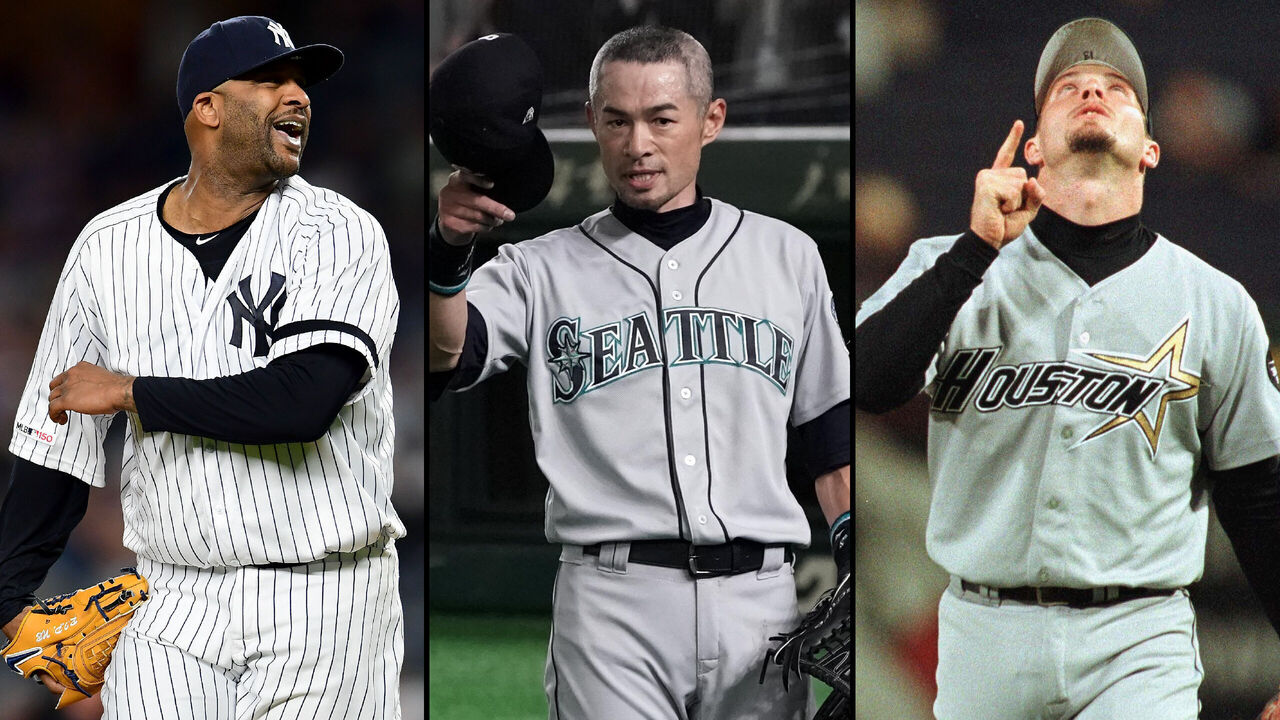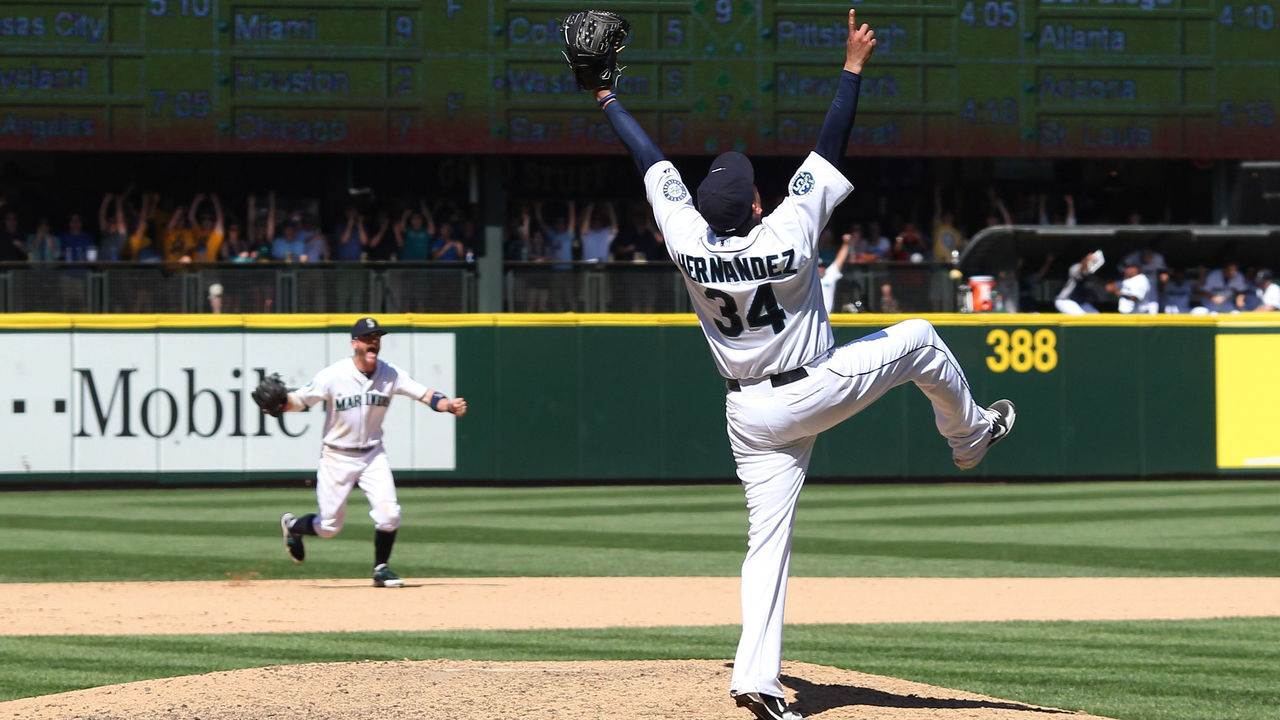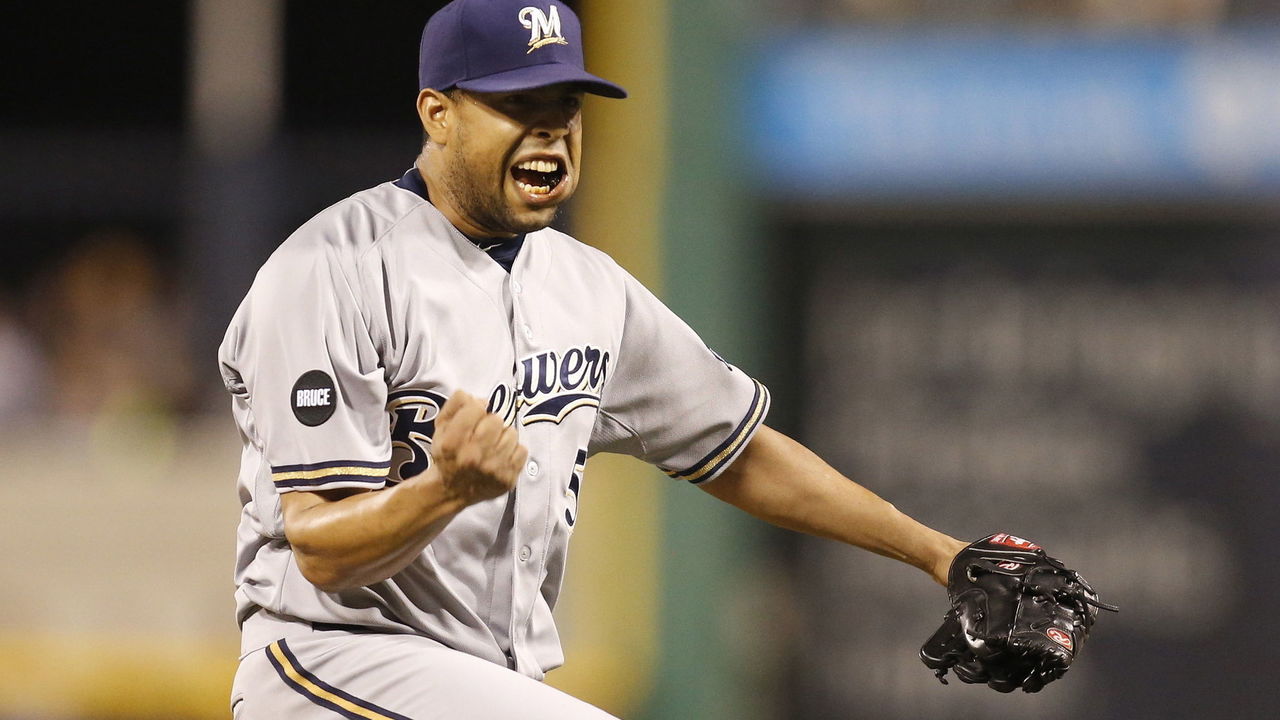Baseball HOF takeaways: It's time to end anonymous voting
The National Baseball Hall of Fame welcomed three new members Tuesday, as the BBWAA elected Ichiro Suzuki, CC Sabathia, and Billy Wagner for enshrinement. Here are the biggest takeaways from the vote.
Ichiro should have been unanimous
Tuesday was a celebration, but one black mark hung over the proceedings. And it's all thanks to one voter who didn't check Ichiro's name.
For decades, the running thought among some voters has been something like: "Babe Ruth and Hank Aaron didn't get 100%, so nobody should." But then Mariano Rivera broke that door down as the first unanimous inductee six years ago, and we were supposed to be done with this madness.
Unfortunately, the year after Rivera earned unanimity, his longtime teammate Derek Jeter inexplicably came up one vote short. The lone wolf who didn't vote for Jeter never revealed themselves. Ichiro suffered that same fate Tuesday, missing the unanimous election he deserved.
Like with Jeter, the voter responsible for Ichiro - an icon of the sport who broke barriers for Japanese players - receiving 99.746% of the vote can slink off into anonymity. This is a travesty. The BBWAA reveals each ballot two weeks after election day, although voters can choose to opt out of this. The Hall can and should fix this.
For all the flaws in its methods, Cooperstown continues to have the most transparent system among the four major sports Halls of Fame. But it can also be better. Forcing voters to reveal their ballots would end the madness of surefire Hall of Famers getting less than 100%. Selfishness was the only reason not to vote for Ichiro, and the Hall needs to tweak these rules to ensure this doesn't happen to Albert Pujols and Miguel Cabrera.
Class for the ages

All that said, Tuesday's results provided Cooperstown with a class for the ages.
Ichiro's obvious election is a watershed moment for Japanese baseball. Beyond the statistics - 10 200-hit campaigns, the single-season hit record, 3,000 hits, and 500 steals - Ichiro had a profound cultural impact on the sport. This summer's proceedings will have a distinctly Japanese flavor.
Sabathia also deserved first-ballot election as arguably the last great workhorse starting pitcher - not to mention that he's only one of three left-handers with 3,000 strikeouts. It was surprising to see how many private voters shunned him (12.8% public-private vote differential).
And voters finally honored perhaps the best left-handed closer ever in Wagner. He's the first AL/NL Hall of Fame pitcher with less than 1,000 innings. But outside of that low total, his numbers are Hall-worthy. It took long enough to get him to Cooperstown.
Add in era committee electees Dick Allen and Dave Parker, and you have a group that fans will remember for decades to come.
King Félix starts strong

It's too early to say whether or not Félix Hernández, the potential model for modern Hall of Fame starters, is on his way to Cooperstown. His debut showing of 20.6% offered plenty of hope. Not only did Hernández stay well above 5%, but he has plenty of room to grow.
Wagner started his rise to immortality at just 10.5% in 2016 and dipped to 10.2% the following year. Andruw Jones took eight years to get above 65% after starting at 7.3%. Hernández has a long climb ahead of him, but it isn't nearly as long as others who either made it in eventually or are now on the doorstep. Also, the lack of viable first-time candidates over the next few cycles (especially in 2026) could open up more votes for Hernández in the years ahead.
Can Wagner help K-Rod?

Relievers are still incredibly difficult to judge, and Wagner's election doesn't change that. However, he could alter the game for Francisco Rodríguez, who has seven years left to make an unprecedented climb.
Rodríguez again hung on to his ballot spot, jumping back to double digits with 10.2% of the vote. His case, if one exists, is quite flawed. But Wagner's election made him arguably the best eligible reliever, which can only help K-Rod. Voters might choose to look at Rodríguez differently after electing Wagner. Watching him try and breakthrough over the next seven cycles will be interesting.
Quick hits
- Carlos Beltrán was above 80% in the tracker and seemed poised to crash this year's party until the private electorate dropped him down again. Still, he's now above 70%, and there's no going back from here. He's served his "punishment" for the Astros' sign-stealing scandal and should headline the 2026 ceremony.
- Jones is also in decent shape after jumping to 66.2%. Given how thin next year's incoming crop of candidates is, a nearly 10% leap next winter is easy to foresee.
- Chase Utley is very much on his way thanks to a nearly 39% spike in Year 2. Although private voters are still staying away from his non-traditional case, that should change over time as he gets closer to induction.
- If you're still waiting for Alex Rodriguez and Manny Ramírez to make their moves, we've got bad news for you. Their support has essentially been capped out.
- Congratulations to Curtis Granderson, Adam Jones, Carlos González, and Troy Tulowitzki on receiving votes at the bottom of the ballot. It's too bad that some of those down-ballot votes didn't go to Ian Kinsler, who had an underrated career and may not have deserved to go one-and-done.